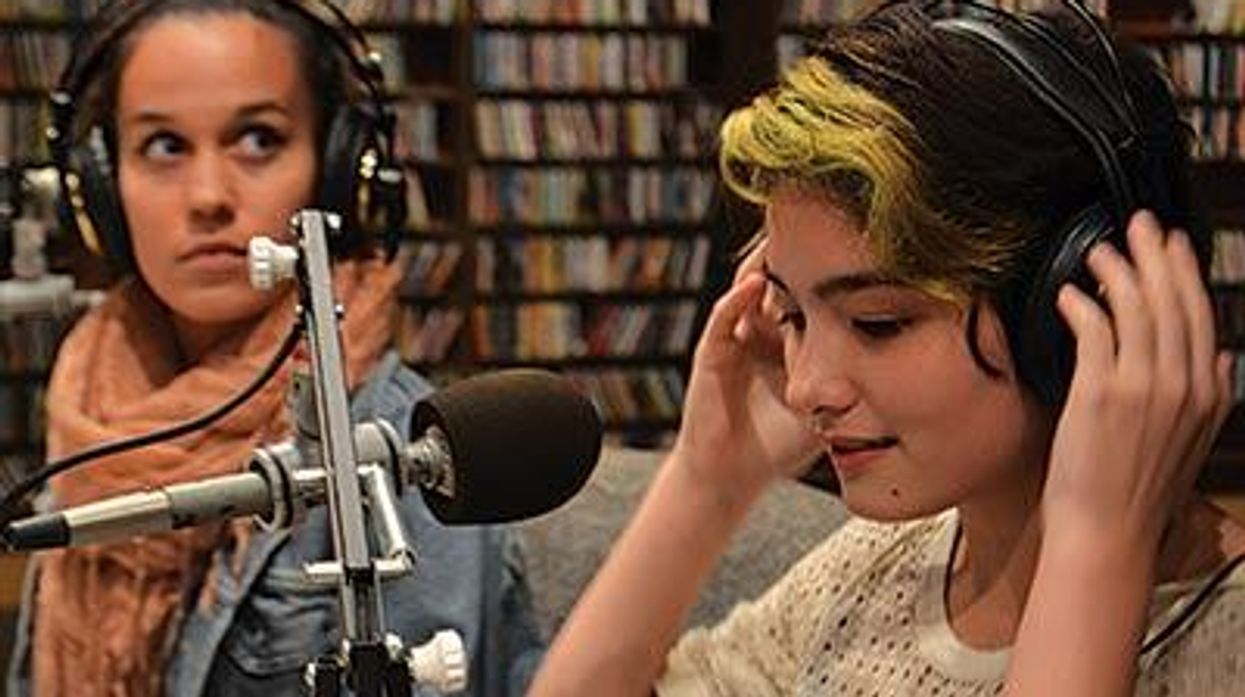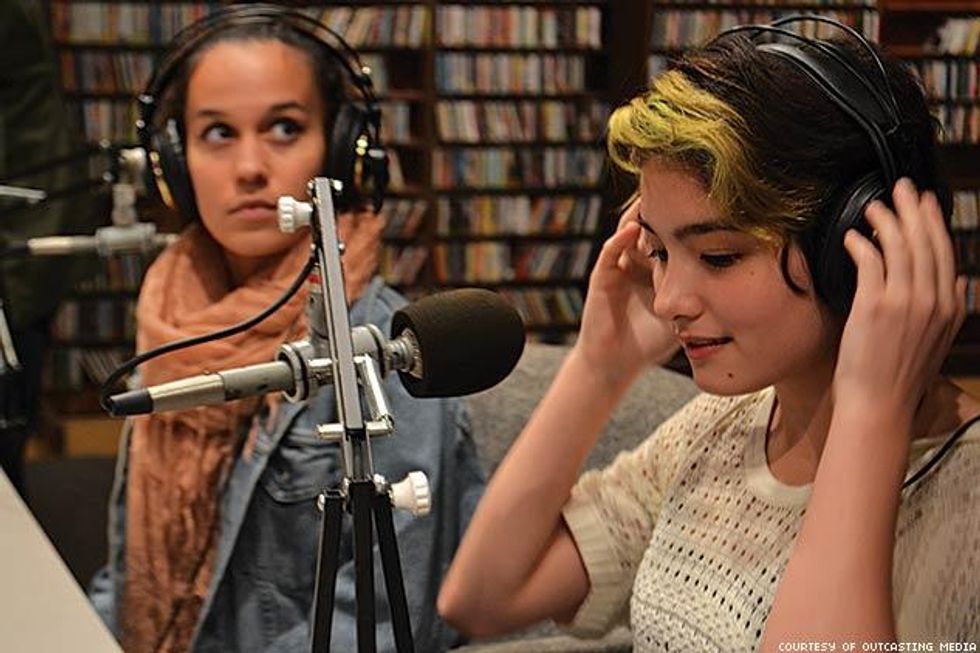
An emerging voice in LGBT journalism, OutCasting covers the issues that gay young people care about -- when the staff isn't studying for the SAT.
November 06 2014 7:00 AM EST
By continuing to use our site, you agree to our Privacy Policy and Terms of Use.


In late July, a reporter named Travis interviewed dramatist Maggie Keenan-Bolger about her play Queering History on public radio. In-depth, well researched, and punchy in the right ways, the spot had NPR-level production values, and Travis performed like a seasoned journalist. What makes all this remarkable is that most of the people working on the show -- Travis included -- are barely old enough to drive.
The program was an episode of OutCasting, a radio series from Media for the Public Good -- MFPG's only series -- produced and created by LGBT high school students and their straight peers to illuminate issues facing queer young people. "It's a resource for LGBTQ youth," explains OutCasting's founder and executive producer, Marc Sophos, a broadcasting professional of several decades. "But it also serves to give information about LGBTQ issues to a general audience and inject an LGBTQ youth perspective into the media conversation we're having in this country."
Sophos came up with the idea for OutCasting in 2006, when the Elias Foundation, which has become one of MFPG's backers, came to Sophos, asking how it could support underserved constituents. After Sophos reached out to local high school gay-straight alliances and assembled a volunteer staff, OutCasting hit the airwaves in October 2011, tackling topics including DOMA and its effect on bi-national couples, New York's Gender Expression Non-Discrimination Act, and teen suicide.
"It's the most rewarding thing I've ever done in radio," Sophos remarks, who plans on expanding OutCasting by founding bureaus in New York City and other parts of the country. "And [it's] one of the most rewarding experiences I've had in my whole life."
With a New York City bureau, Sophos hopes that OutCasting will expand the number of queer perspectives it covers. "There's a lot more diversity among the kids here in New York than there is up in Westchester, so that's going to add a good dimension to the program," remarks Sophos. "It's the first of what we hope will be a whole group of bureaus in different places in the country, so OutCasting can reflect LGBTQ realities outside just the Northeast."
Charlie Kirk DID say stoning gay people was the 'perfect law' — and these other heinous quotes